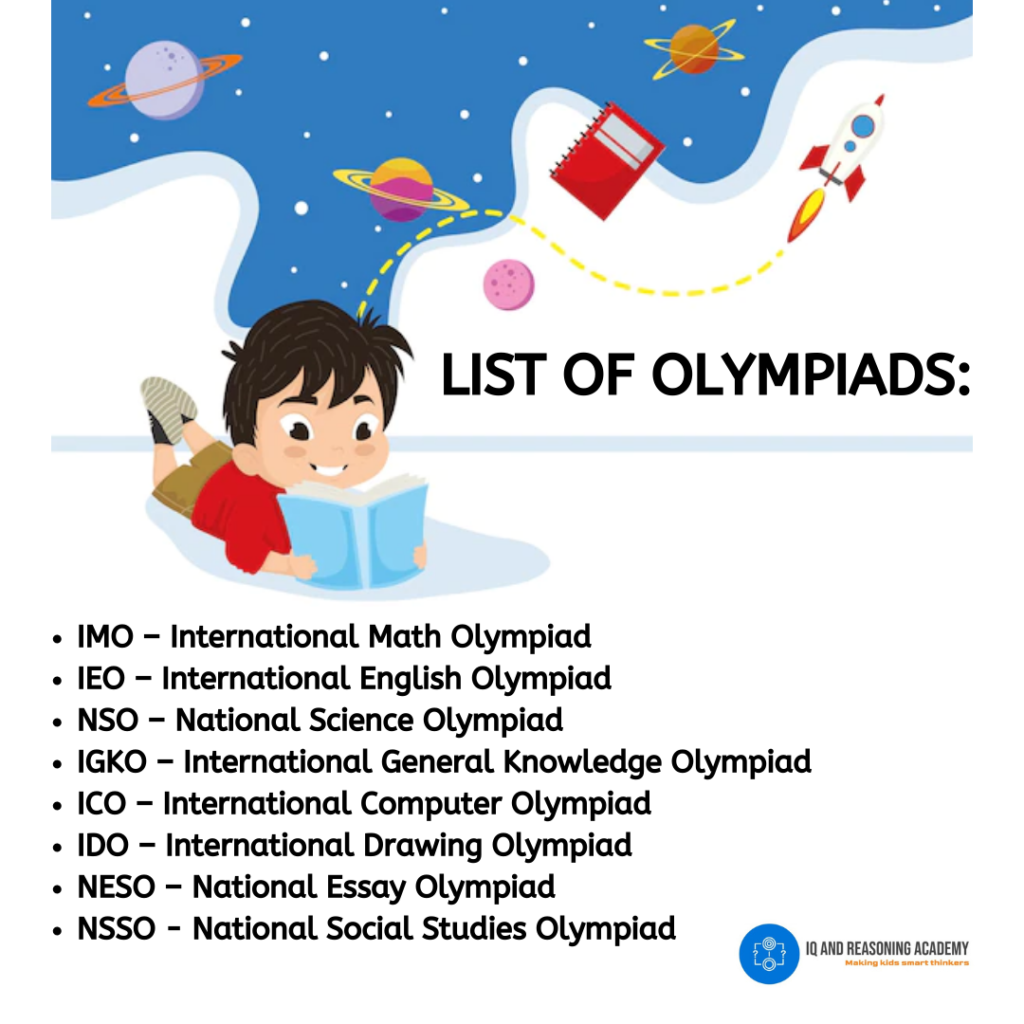The International Mathematics Olympiad (IMO) is a competitive exam conducted at a global level for students of Class 1 to 12. It is held annually in December and February in every country. It is one of the most prestigious Math competitions in the world.
The competition understands that all students are different. Hence, it encourages and focuses on the ability levels to build self-confidence and improve attitude towards Math and problem- solving.

Eligibility & Registration
Any student from Class 1st to 12th and who is under the age of 20 can participate in the Olympiad. Students from ICSE, CBSE and other state board curriculum are eligible to participate in the Olympiad.
Students may either choose to register through their respective schools or they can do so individually if their school is not participating. For the schools registered with Science Olympiad, the prospectus containing the registration forms can be collected from school. It should be submitted in the school along with a registration fee of INR 125 (including GST) for schools in India, Bhutan, Nepal and Bangladesh. A USD 9 for other countries has to paid towards the cost of examination. School may additionally charge INR 25 or USD 1 towards miscellaneous expense, teacher’s remuneration or as an honorarium of in charge.
For students registering individually, you can do so through portals such as India Talent Olympiad which enable online examination or through other local intermediaries that conduct Olympiad examination offline.
Students with any major physical ability or an Indian student whose parent(s) are martyred during defense operations are not liable to pay any fees.
Syllabus
These exams are based on the regular study program of the school. The syllabus of the exam differs according to class. The syllabus ranges from basic topics like time, numerals, addition, subtraction, money, pattern, measurement, fraction to extremely difficult algebra, geometry, trigonometry, pre- calculus sums and a lot more mathematical concepts. It also consists of branches of mathematics not usually taught in the secondary or higher schools like projective or complex geometry, functional equations, combinatorics and well- grounded number theory for which deep knowledge of theorems is required.
Exam Format
The International Math Olympiad is conducted at two levels by the Science Olympiad Foundation. No calculators are allowed during the examination. The IMO is conducted in four sets or sessions. They are called as Set A, Set B, Set C and Set D.
IMO Level 1: The test is conducted for students Class 1 to 12. The test duration is 60 minutes. Students from Class 1 to 4 are required to attempt 35 multiple choice questions. Students from Class 5 to 12 are required to attempt 50 multiple choice questions.
IMO Level 2: The second level of IMO is conducted for students from Class 3 to 12.
The problems do not require knowledge of higher mathematics, however the sums are challenging and disguised so as to make the solutions difficult.
It is the IMO jury who is responsible to take formal decisions related to the Olympiad.

Who qualifies for Level 2 IMO exam?
The following students are considered to qualify for final level 2 exam:
- School level: The Class topper in case where 10 or more students from the class attempt level 1 and score a minimum aggregate of 50% marks.
- Zonal/ State level: The first top 25 rank holders are considered.
- International level: The top 5% of the contestants who appeared for level 1 classwise are considered.
How to prepare for Math Olympiad?
Planning and preparation are a must when it comes to participating in any serious competitive exams like International Math Olympiad. There are many online websites through which you can buy the preparatory material to crack this exam. The questions are in MCQ format framed by subject experts and consists of topics from the updated syllabus. The books are accessible for Classes 1 to 10.
Result
The International Mathematics Olympiad exam results for the level exam are typically declared in the month of March after all sets of exams set A, B, C and D are conducted. The results are declared online on the official website of the Science Olympiad Foundation.
